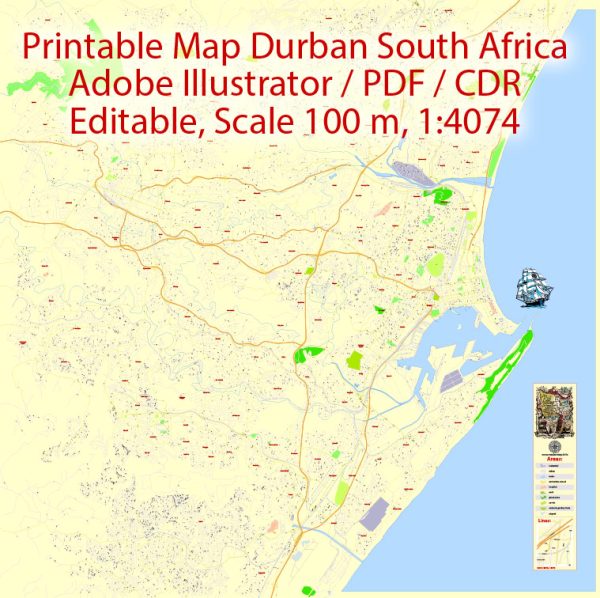Durban, South Africa, has a rich and diverse history that reflects the complex tapestry of the country’s past. Here’s a brief overview of its historical development:
- Indigenous Inhabitants: The area that is now Durban was originally inhabited by indigenous peoples, including the Khoikhoi and San. The Zulu people later migrated to the region and established their presence.
- European Exploration: In the late 15th century, Portuguese explorer Vasco da Gama passed the region on his way to India. However, it wasn’t until the early 19th century that European settlers, particularly the British, began to establish a more permanent presence.
- British Colonization: The British established a settlement in the area in 1824, initially naming it Port Natal. It was later renamed Durban in honor of Sir Benjamin d’Urban, the Governor of the Cape Colony. The British presence led to conflicts with the Zulu people and other indigenous groups in the region.
- Zulu Kingdom: The Zulu Kingdom, under King Shaka and his successors, was a powerful entity in the region. The Anglo-Zulu War of 1879 had a significant impact on Durban’s history, with the British ultimately prevailing.
- Growth and Development: Durban’s development was boosted by its natural harbor, which made it a vital trading and shipping hub. The city grew rapidly in the late 19th and early 20th centuries. It became an important part of the British colonial infrastructure and a key trading post.
- Apartheid Era: Like the rest of South Africa, Durban was subject to the system of apartheid, a racially segregated political and social structure, from 1948 to 1994. During this time, many non-white residents were forcibly relocated to racially segregated areas on the outskirts of the city.
- Post-Apartheid Era: Following the end of apartheid, Durban, like the rest of South Africa, went through a process of reconciliation and transformation. The city became more integrated and diverse, with a focus on promoting equality and inclusivity.
- Modern Durban: Today, Durban is a vibrant and diverse city known for its beautiful beaches, diverse cultural heritage, and thriving economy. It remains a crucial economic and cultural center in South Africa.
Durban’s history is marked by its development as a British colonial outpost, the struggles of apartheid, and its transformation into a bustling and inclusive modern city. It serves as a testament to the resilience and cultural richness of South Africa.


 Author: Kirill Shrayber, Ph.D. FRGS
Author: Kirill Shrayber, Ph.D. FRGS